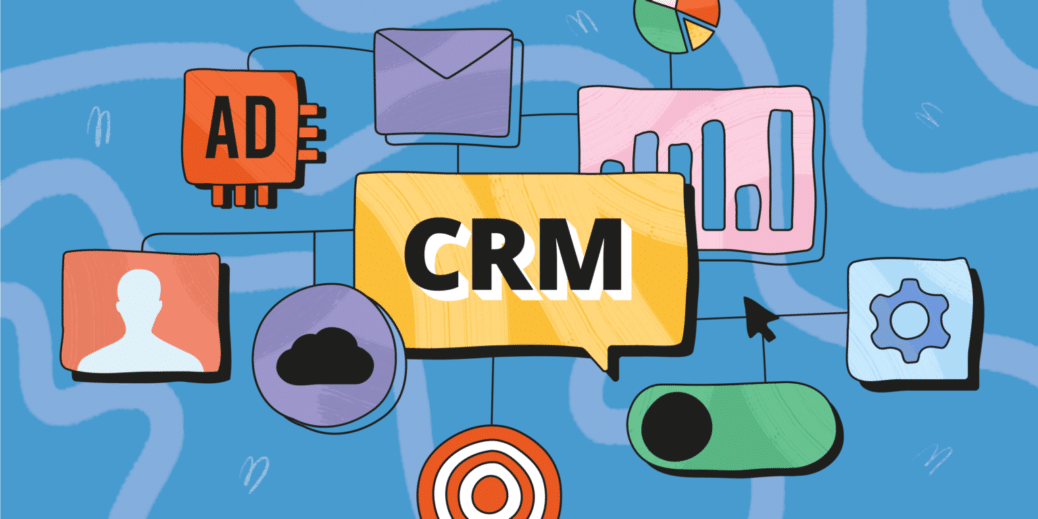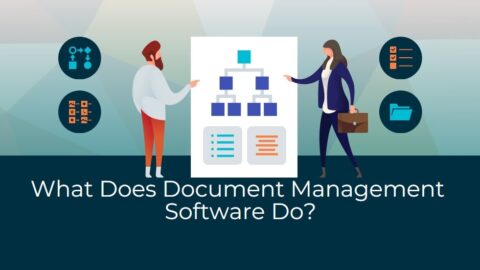5 Reasons Why Integrating CRM and Accounting Software Can Benefit Your Company
Complete, accurate financial data and sales numbers are essential to the success of any organization. However, out of all of a company’s data sets, these two sets of information will likely be among the most difficult to reconcile. It’s commonplace for sales and accounting numbers not to match up, and many businesses waste valuable time and resources trying to compare the numbers manually. This problem is frequently exacerbated by the fact that businesses tend to purchase discrete accounting software and customer resource management (CRM) software to handle these numbers separately. When your CRM and accounting data don’t align, you risk receiving an inaccurate picture of your company’s cost management, efficiency, profits, and much more. Fortunately, it’s possible to sidestep these reconciliation issues entirely by integrating CRM and accounting software.
Table of Contents
The first step in any integration effort, naturally, is to look into CRM and accounting software Philippines-based companies trust. As state-of-the-art software supports a more efficient integration initiative. But it’s equally important to have a thorough understanding of the benefits that integration can bring to your business. So that you know exactly what you’re working towards.
Here are five compelling reasons why you should be integrating your accounting and CRM solutions:
More Accurate Data
Many businesses, especially those that have been around for a long time, fall into the trap of using different software applications across different teams or business units. Under such a system, data management can rapidly become fragmented into silos. Hence, making it difficult to guarantee companywide accuracy. Furthermore, data silos make it difficult to ascertain that the whole organization can see the same data. In addition, they also make it harder for departments to communicate and share information. And this can lead to inconsistent information, costly errors, and inefficient workflows.
In contrast, integrated software systems sync company data in real time. So you can be confident in the accuracy and timeliness of both your customer and financial data. With this data in hand, it becomes easier to view and interpret the relationship between your company’s revenue and sales. And from there, you’ll have enough knowledge to make the most intelligent possible decisions about marketing, pricing, new product development, and a host of other business strategies.
Better Customer Service

Integrating your accounting and CRM software gives your customer service representatives access to your company’s financial data in real time. They can then use this data to address customer concerns more quickly and comprehensively. If a customer has an inquiry about their most recent payment. For example, your customer service team can look this data up from within the CRM system. There’s no longer a need for them to access the accounting system or contact the finance team manually.
Integrated systems also make key customer information more accessible to the entire company. This is including customer preferences, purchase histories, and interactions with customer service personnel. This information can in turn help you provide more focused, personalized customer support. You can also leverage integrated systems to support more customer self-service functions, such as shipment tracking, returns, and exchanges.
Greater Efficiency
If your company runs discrete CRM and accounting systems, your staff will likely have to enter data multiple times to ensure that it exists accurately on both. This approach doesn’t just create double. And sometimes triple the work for your teams. But it also increases your risk of data entry errors, duplications, and other mistakes. And going back over your data to identify and fix those errors will only be a further drain on your time and resources.
On the other hand, integrated solutions eliminate the risk of duplicate data. They can also collect, gather, analyze, and store data with minimal risk of error. While errors may still arise from time to time within an integrated system, staff members will at least only need to correct them once instead of multiple times. And the faster your personnel are able to resolve these data errors, the sooner they’ll be able to move on to more value-adding work.
Increased Visibility via Integrating CRM and Accounting Software
When your accounting and CRM systems work in tandem, you receive a more complete perspective on your company’s financial performance. This will drive better decision making on concerns like inventory management, pricing, product development, and resource allocation. Integrated systems can also use high-level predictive analytics to provide more accurate financial forecasts.
To illustrate, with integrated systems, you’ll be able to see that specific customers are purchasing more of a particular product. As a result, you can then subsequently use this data to craft more targeted marketing initiatives, driving sales upwards.
Better Cost Management

Most business software is paid for using a recurring subscription model. It means that the more software systems you invest in, the more recurring payables your business will have to stay on top of. However, that’s not even the only way running multiple systems drives up your business costs. As adding more subscriptions also drives up maintenance, efficiency, and training costs.
When you adopt a unified, integrated solution, your company’s software subscription fees can be scaled down into a single bill. You also won’t need as much maintenance labor when you choose to work one system instead of several.
Integrating accounting and CRM software systems provides your organization with a unified source of truth. And it can base its decisions and operations. A properly planned, well-executed integration project will ultimately net your company stronger tech infrastructure, improved connectivity, and the most accurate company data possible.

11+ years strategic communications, marketing, and project management experience. I am a trainer at StarWood Training Institute, focusing on online courses for project management professionals.










